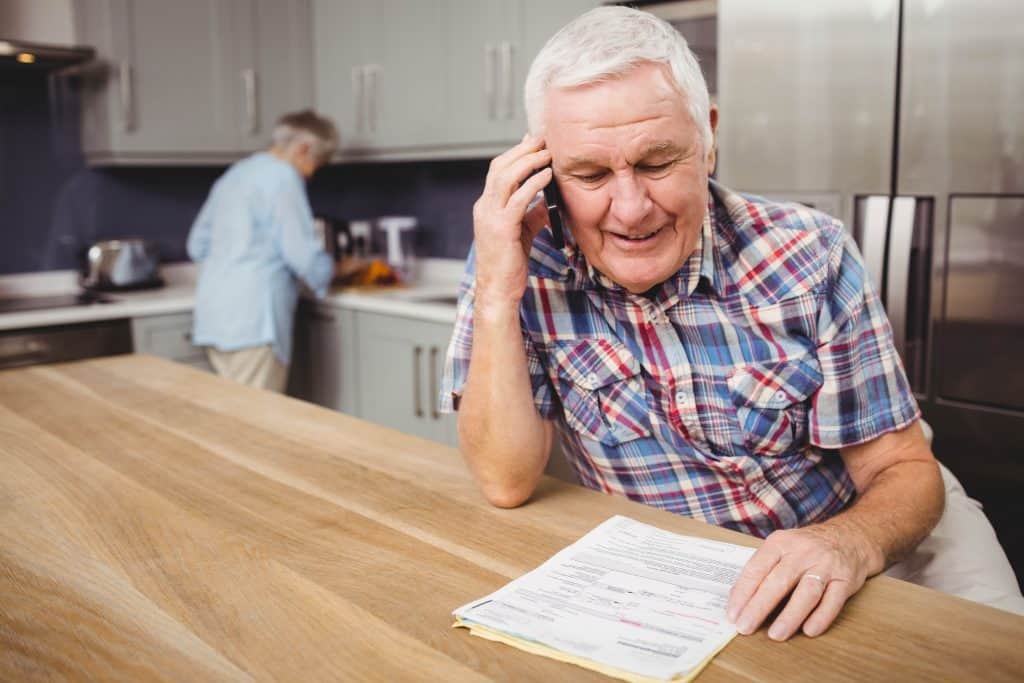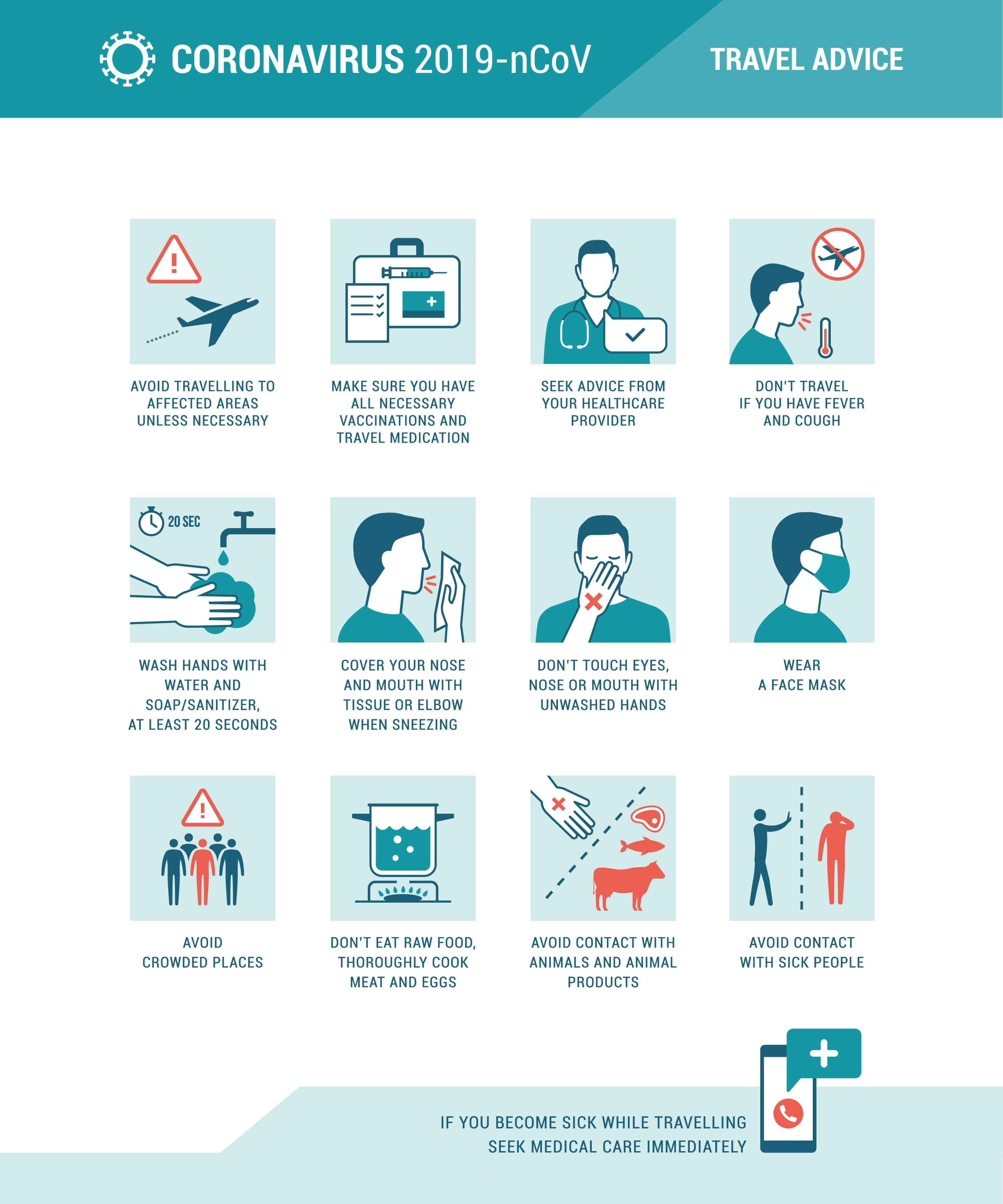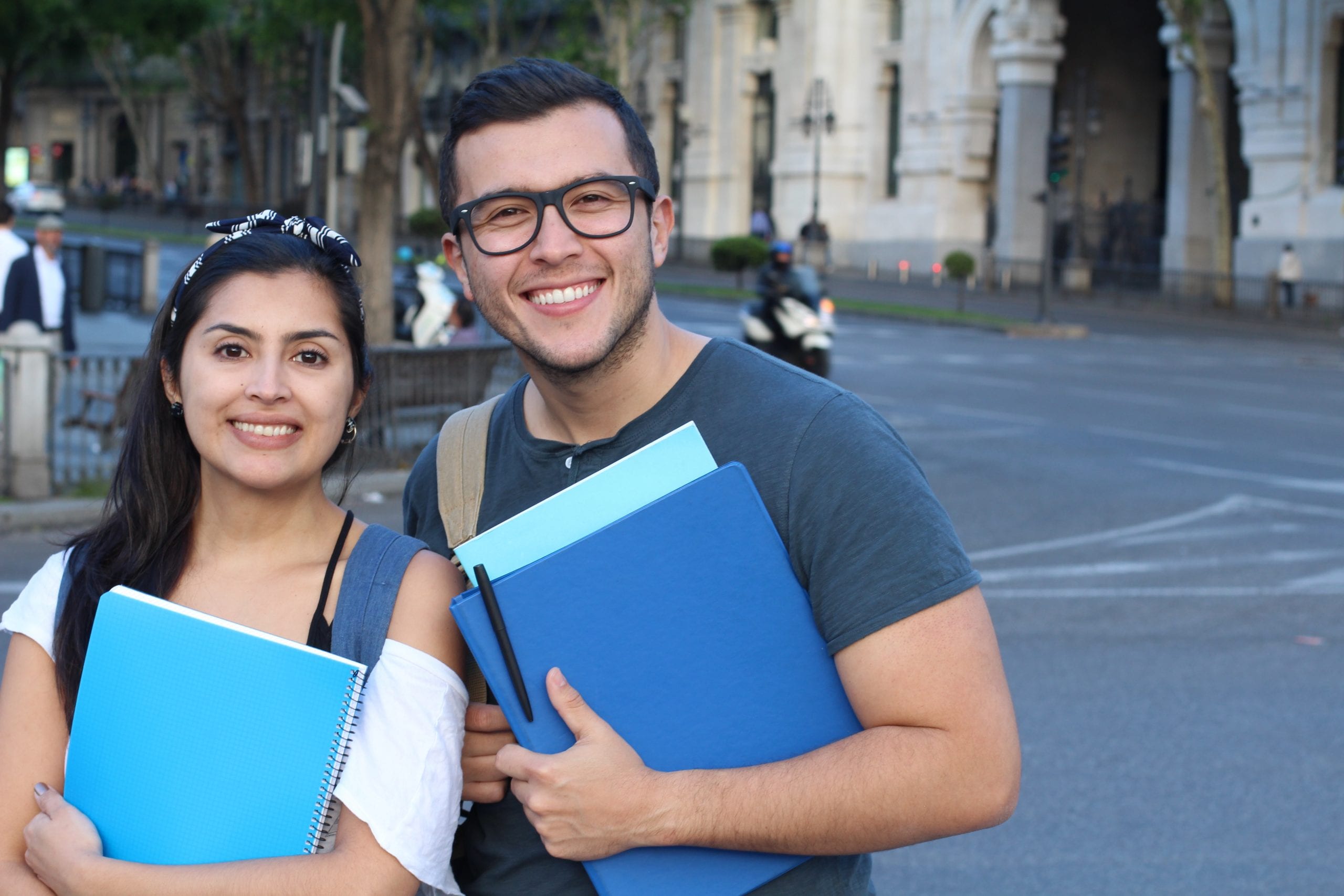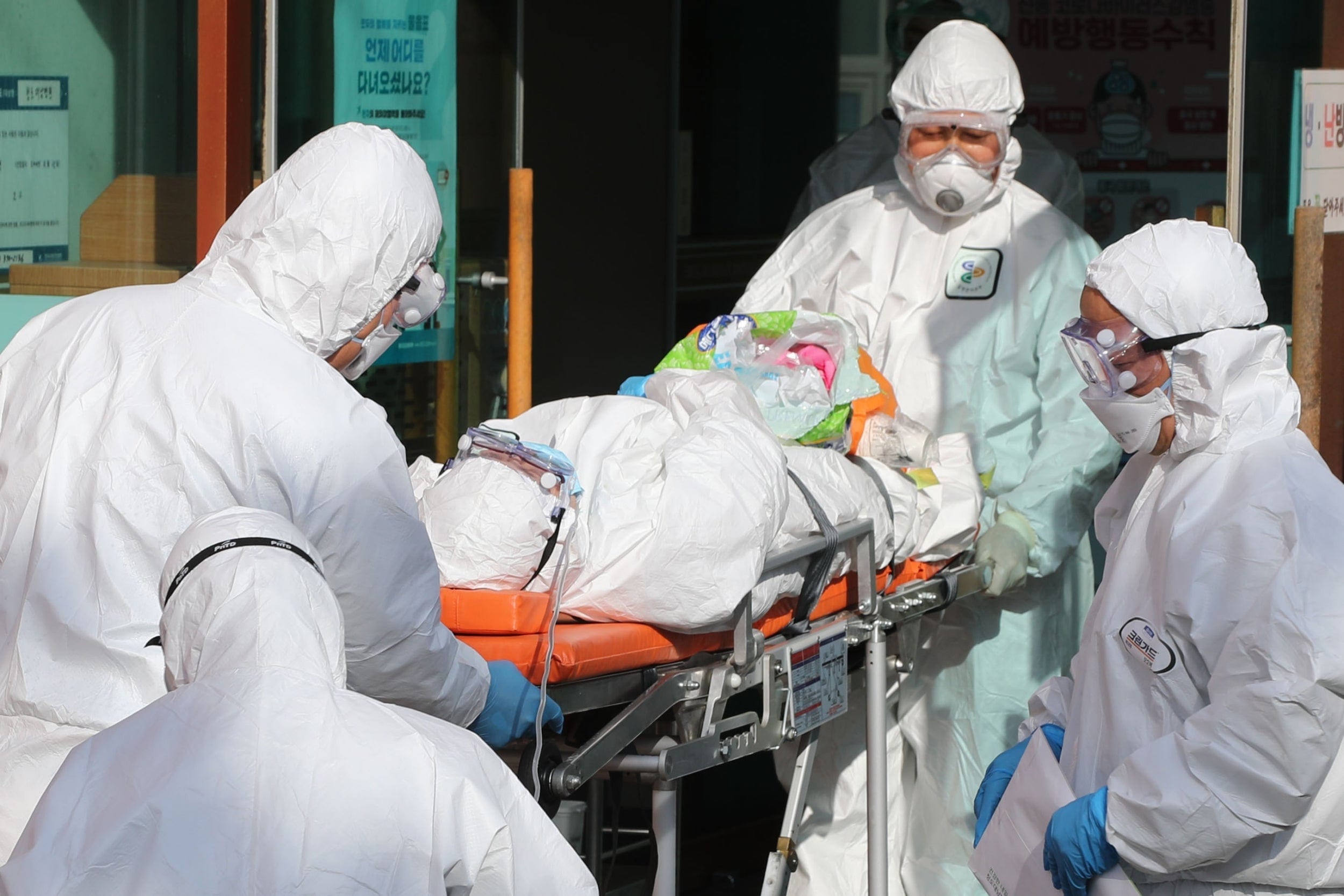Travel Safety during the COVID-19
Stay informed during the 2020 COVID-19 global crisis
What we’ll look at:
- What is coronavirus COVID-19
- Key considerations when planning a trip
- How to stay safe while traveling
- What to do if you are worried about contracting COVID-19
- Information to be aware of when leaving a country with an active outbreak
- What to do post travels
What is the coronavirus COVID-19
In December 2019, the novel coronavirus, now known as COVID-19, broke out in the Wuhan region in the Republic of China following an illness that began from exposure to live animals at a wet market.
Coronaviruses are viruses that cause flu-like symptoms that can lead to more severe respiratory illnesses such as pneumonia. Very severe cases can result in death. The vast majority of those who have lost their lives to COVID-19 are elderly people with underlying health issues. The coronavirus transmission rate is estimated at 2-3. Meaning, 1 infected person could potentially infect 2-3 people.
Similarly, other global coronavirus history includes the Severe Acute Respiratory Syndrome (SARS) and Middle East Respiratory Syndrome (MERS).
Key considerations when planning your travel
If you are planning to travel, you can find the latest coronavirus updates on the World Health Organization’s website, including which countries are safe for travel and which countries to avoid or exercise a high degree of caution in when visiting.
Some other points to consider before commencing travel:
- Speak with your GP about your travel plans if you are travelling with the elderly, people with underlying chronic medical issues, young children and babies, pregnant women, or someone with a weak immune system.
- Look into the travel advice for the country you intend to visit and if it is marked safe for travel. You can visit the WHO website or Smart Traveller for advice.
- Read our advice on how to keep yourself safe from infectious diseases
- Have a medical plan in place. If you are in a country covered by Australia’s Reciprocal Health Care Agreements, you may have access to essential medical treatment. Check your health insurance policy because your insurer may have agreements with hospitals outside of Australia.
- Keep informed about the country you’re visiting and understand that the active COVID-19 outbreak may cause travel disruptions
- Weigh the risks you’re taking and expect restrictions in high-risk countries and those marked not safe for travel.
- Get in touch with the service providers for your trip such as travel agents, insurers, airlines, and accommodation providers to discuss potential changes.
Key considerations while you are travelling
Minimise your risk of infection by practicing the following:
- Maintain good hygiene practices. Wash your hands regularly with soap and water or hand sanitiser. Sneeze and cough into your elbow.
- Avoid coming into contact with anyone with flu-like symptoms.
- Stay informed about advice from the local authorities.
- Avoid live animals and wet markets.
- Monitor your health and that of your traveling companions regularly. If you develop any flu-like symptoms (cough, sore throat, fever, difficulty breathing) see a doctor immediately.
- Communicate with your airline or travel agent about changes to flight services, especially if you are in an infected area.
- Expect to be screened in most countries or denied entry if you are returning from an infected area. Travellers returning from countries with an active COVID-19 outbreak may be quarantined. Seek advice from the embassy or consulate you intend to visit or transit through.
Key considerations when returning from travel
Australia has well-established mechanisms in places of entry to protect the Australian community, including border control, isolation, surveillance, and case tracing procedures. Furthermore, all airlines must report any passengers who show signs of the COVID-19 or any infectious disease to biosecurity who make an assessment and take necessary action.
Foreign nationals returning from or transiting through mainland China (excluding Australian permanent residents) will have to wait 14 days before granted entry into Australia.
Australian permanent residents, citizens, and their immediate families can enter Australia.
Anyone returning from or transiting through mainland China or Hubei Province must isolate themselves for 14 days after leaving China. Anyone who has come into close contact with a confirmed COVID-19 case must isolate themselves for 14 days.
If you don’t feel well
Above all, if you develop flu-like symptoms while traveling or feel unwell within 14 days of your return, isolate yourself from others and arrange to see your GP immediately. Call your GP or hospital before you go in and inform them of your travel history.
☆☆☆☆☆ 4.8/5

Brilliant and cheerfulShelley Read More
Brilliant and cheerful, helpful assistance! Took all the pain and drudgery out of optimising my health insurance. I’m really satisfied with the outcome. Effective insurance for the extras I use AND reduced premiums. Thanks Mark!
Great outcomeCustomer Read More
Great outcome. Saved $1000 per year with very little work on my part.
Dan the manSteve Folkes Read More
Daniel was the man that contacted me , he was very polite and knowledgable,we had a good repoire.
He made my transition to a more affordable fund effortless as he done all the work and cut through all the whys and wherefores that make it understandable.
I’m happy with this service.
Previous
Next
Articles
Travel Safety during the COVID-19
February 28, 2020
Stay informed about travel safety during the 2020 COVID-19 global crisis
485 Temporary Graduate Visa
February 27, 2020
The 485 Temporary Graduate Visa allows you to remain in Australia to live, study or work after you have finished your studies.
Overseas Students Health Cover
February 24, 2020
If you are an overseas student in Australia on a Student Visa (Subclass 500), you are required to take out health insurance for the duration of your visit.
Daegu City: panic takes hold as messianic church links to mass infection
February 24, 2020
A 61-year old South Korean female member of a controversial sect has been identified as patient zero for a mass coronavirus outbreak in Daegu city







 Single
Single Couple
Couple Family
Family Single Parent
Single Parent